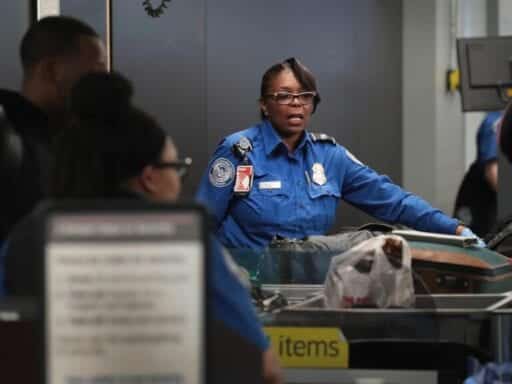Bring your change with you!
Air travel can be stressful when passengers are rushing to get to their boarding gates on time, especially on busy days like Memorial Day. Maybe that’s why people keep leaving behind their change at security — almost $1 million a year, all of which goes to the Transportation Security Administration.
The existence of this loose change recently entered the limelight when an internal Department of Homeland Security proposal asked the TSA for $3 million worth of loose changed gathered at airports for border operations if Congress does not approve its $1.1 billion funding request, according to a report from NBC News. While that might not seem like a lot in comparison to the $232 million DHS wants TSA to hand over in total, $3 million is a lot to gather from leftover coins in plastic bins at airport checkpoints.
Where is all that money coming from? Loose change left in security bins has long been an unusual revenue source for the TSA, and the amount of money left behind continues to grow.
Every year, the agency has to release a report on all the unclaimed money it collects to Congress: In 2012, TSA collected $531,000 and in 2016 it jumped up to $867, 812, according to NBC News. By 2018, it reached $960,105.
It’s easy to leave possessions behind when people are asked to empty their pockets, said TSA spokesperson Lisa Farbstein. There are plenty of distractions at security checkpoints: Loose change can be missed because of advertisements at the bottom of bins or forgotten while passengers struggle to collect their items from three different trays, she said.
It’s not just quarters and dimes, either, Farbstein said: The money that the agency collects also includes large bills left behind in unclaimed wallets.
The most money, naturally enough, comes from busy airports in big cities: According to the agency’s report on the 2017 fiscal year, John F. Kennedy International Airport collected the most money at $72,392. Los Angeles International Airport was a close second at $71,748. Miami International Airport and O’Hare International trailed behind at $50,504 and $49,597.
Travelers in Reno, Nevada, meanwhile, left behind a mere $19.85.
Once the loose change is found, smaller airports send the money they collect to larger hub airports, which then rolls the change and deposits it to TSA, Farbstein said. The TSA keeps track of all the money that is being stored and transported, she said.
“If a TSA employee even takes a quarter or a dime, they would be fired,” she said. “There’s no excuse for that. It’s a matter of integrity.”
Since 2005, Congress has allowed the TSA to spend the money however it wants to improve security operations. In the past, some of it has been used to translate security signs into foreign languages and to expand the TSA Precheck system, which expedites security for prescreened passengers (although even those passengers have to empty change from their pockets).
But the money has piled up — leading to an attempt by Congress to control how the TSA spends it. The TSA Loose Change Act was introduced in 2013 to donate the money to nonprofit organization that would “provide places of rest and recuperation for Armed Forces members and their families” in airports. Though the bill received bipartisan support and passed in the House of Representatives, it died in the Senate. It was reintroduced in 2017, but no progress has been made.
It’s not yet clear if the money will end up being used for border security. But for travelers hoping to avoid contributing to the growing pile of loose change, Farbstein has some advice: When taking things out of your pocket, immediately drop them into your carry-on.
Author: Catherine Kim
Read More



